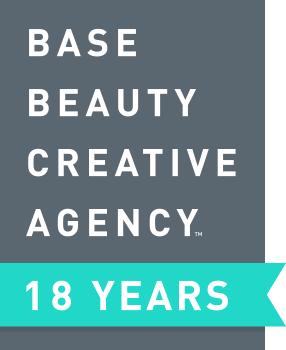Language is so fascinating and meanings are constantly evolving. There was a time, not that long ago, when empathy was viewed as a soft and squishy skill…a nice-to-have quality that might make your employees feel good about their jobs, but one that did not really contribute to a business’s success. The word was never heard in a corporate boardroom or a marketing strategy session. What no one realized then—and what we have been talking about a great deal lately—is that successful marketing is all about empathy. Empathy is seen in some of the greatest leaders in every area of life. Empathy is essential to building meaningful relationships, personal or professional. Empathy fuels success in fundamental and intertwined areas of your business: the culture you create for your team, how that culture supports your relationships with your clients, and how it impacts your strategies for reaching your customers.
Here, we’re focusing mainly on empathy within a business’s internal culture. Empathy expressed by management for their reports and by team members for colleagues accomplishes many things. It lets people feel good about their jobs and their contributions to the company’s success, underscoring that they are a valued part of a team. It helps them grow in those jobs by offering constructive feedback delivered in a positive, helpful, we-know-you-can-do-it way. It creates a safe space for people to communicate openly, ask questions, and take the risks necessary for professional development. Your people learn, flourish, and stay, which benefits all stakeholders. An empathetic atmosphere affects the bottom line on many levels, especially by reducing costly and time-consuming staff turnover.
At Base Beauty, when hiring, we always have feelers out for the empathy factor, and over the years, we have developed a good sense of who has it and who doesn’t. We ask interview questions designed to measure a candidate’s empathy, such as:
- What are you looking for in a company’s culture?
- What do you feel you can contribute to the company’s culture?
- What are the qualities you are looking for in your supervisors and coworkers?
- Can you think of a situation in a previous job or school setting where approaching a sticky situation with empathy helped to achieve an agreeable resolution? What did you learn from it?
Did you know that empathy can be measured? The Emotional Intelligence (EQI 2.0) assessment is a leading measure of emotional and social skills that collectively establish how well we perceive and express ourselves, develop and maintain social relationships, cope with challenges, and use emotional information effectively and meaningfully. Not surprisingly, when Base Beauty’s team members participated in this assessment, our empathy scores were the highest among the 15 other EQ competencies. Other high scores across our team were in self-actualization and emotional self-awareness. All three of these qualities contribute to the nurturing, supportive, and forward-thinking environment we have built at Base Beauty.
In a practical sense, these assessments reflect how our team members ask for and consider others’ needs in meetings and discussions, how they actively and thoughtfully listen to what others have to say, and how they use all communications, from scheduled meetings to impromptu water cooler chats (even virtual ones!), as opportunities for deep understanding.
Our agency recently participated in a workshop on the importance of feedback—how to give and receive it, how to express it productively and honestly, and how to use it for growth and motivation. It was so helpful to take this deep dive into the finer points of delivering constructive feedback to colleagues, which is crucial in creating an environment of empathy. Some of these points include:
- Giving feedback with positive intent, not looking for “gotcha” moments
- Providing feedback in a timely way when it can be most helpful for the immediate situation
- Sharing one’s own experiences or screwups to let the target of your feedback know that you’ve been there, too
- Focusing on solutions
- Showing how the goal of the feedback is growth
While the empathy factor is high at Base Beauty, focusing on ways we can improve is always productive. This workshop did just that.
The insights discussed above on meaningfully expressing feedback were focused on the inner workings of BBCA, but the lessons also apply to our relationships with our clients. We believe that empathy for our clients’ needs and our ability to share feedback productively are qualities that set Base Beauty apart from other agencies. Whether our client is a global household name or a challenger brand, we work to grasp their marketing structure and figure out how we can make their jobs easier.
Communication is central to our client relationships. We make sure they share with us their challenges, both from within their companies and from competitive brands, which helps us understand the context of their needs. We learn what pressures they are under from their supervisors, C-suites, and shareholders. Many marketing departments, big or small, are understaffed and stretched thin, often asked to deliver more than they possibly can. We have found that it’s challenging for even a substantial marketing team to stay on top of the vast and ever-changing trends, tools, and analytics of today’s marketing landscape. But we can. That’s our expertise and what we do every day. So, we’re the cavalry, stepping in to function as an in-house marketing department or an expansion of their own.
Our approach with clients minimizes chaos, confusion, and wasted time so they can focus on other areas of their jobs. By understanding what each member of our client’s team needs, we continue to build trusted, enduring relationships fueled by empathy.
To accomplish this, we call on outside sources as needed for specific pieces of the analytics puzzle—Tagger to discover like-minded brands and influencers, Mintel for consumer insights and market research, and Brandwatch to help us manage our social media platforms, track content performance and KPIs, and monitor community conversations, to name a few. We pull together the learning from these resources to create holistic solutions that help our clients reach their business goals.
It naturally follows that by creating a supportive, responsive, and efficient agency culture, and approaching our clients’ needs with empathy, we can reach out to the consumer with the same level of empathy. By putting ourselves in our clients’ shoes, we also put ourselves in the customers’ shoes as they search through the thousands of products available to find what they need. We make the consumers’ shopping journey easier, too.
We’re thrilled to be living and working in a time that recognizes the value of empathy. We could go on about how a little more empathy in our world would be a good thing, but for the moment, we can only speak about how we see it as an approach to business success. It is not hyperbole to say that empathy is the most meaningful and valuable tool in our creative marketing toolbox.

